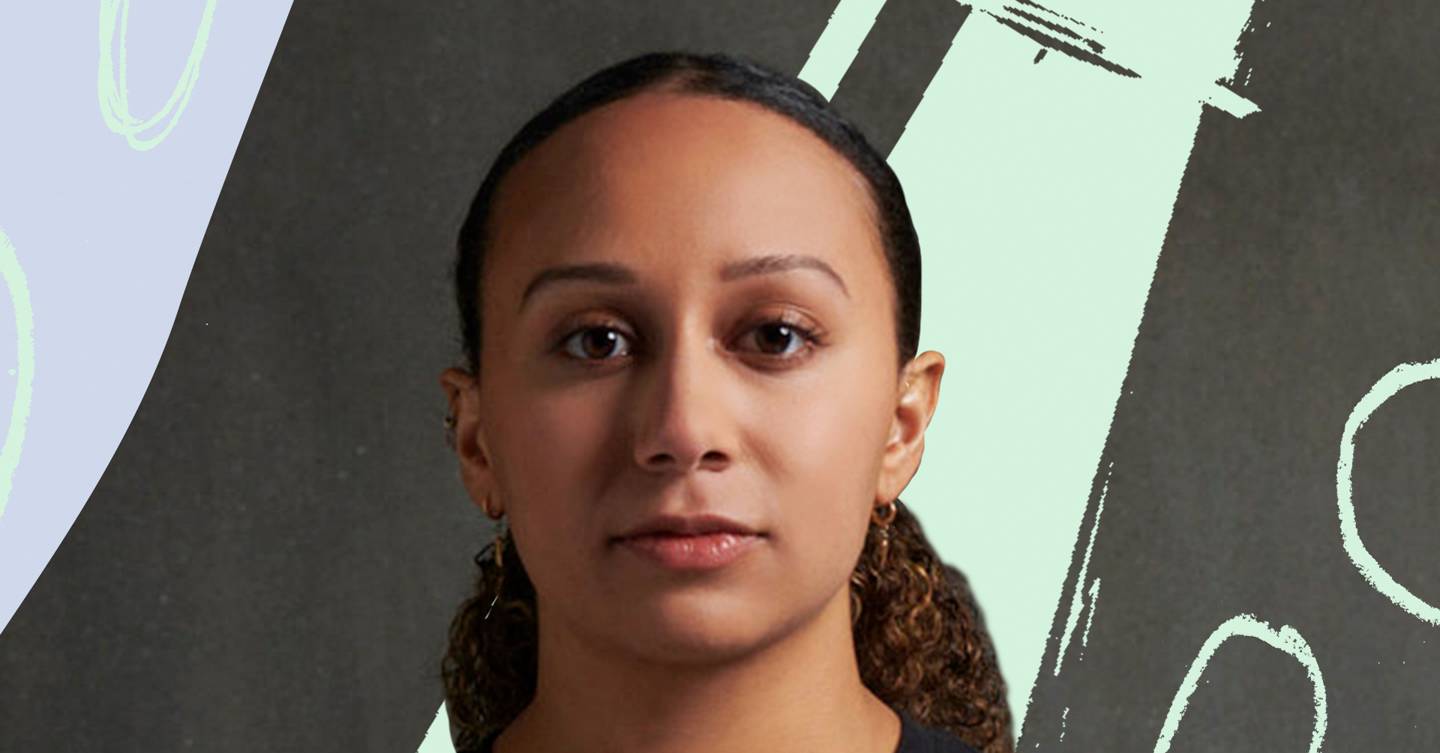Zoe Smith, 25, is a professional weightlifter from London. She won bronze at her first ever international competition at the 2010 Commonwealth Games in Delhi, then was chosen to represent Great Britain at the 2012 Olympics in her home city.
But as for most female athletes, Zoe’s path to success has been marred by challenges, from lack of sponsors and funding to struggles with injuries and mental health.
She tells GLAMOUR her story…
I started my weightlifting journey almost by accident. I was 12 years old and practising gymnastics at a new club, when the weightlifting team started scouting for girls to join. Back then, you needed two boys and one girl per team – which gives you an insight into how many girls and women were doing weightlifting at that time!
One of our instructors took me and another gymnast downstairs to the weightlifting gym for a taster session. We looked totally out of place with our bare feet and gymnastics leotards, amongst all the men lifting heavy weights!
But there was just something about it I instantly loved, and it seemed very natural to me. I qualified for my first international competition (European Youth Championships) when I was 13 and then started getting selected for youth and junior squads.
I was 16 when I made my first senior team appearance at the 2010 Commonwealth Games in Delhi, where I took home a bronze medal. Two years later, I qualified for the London Olympic Games.
2012 was a dream come true, and I broke the British Senior Clean and Jerk record. Very few athletes get to compete at an Olympics in their home country, let alone one just across the river from where they grew up! The aftermath was insane too, I don’t think many weightlifters expect to be stopped in the street for photos. It was electrifying, and it motivated me to push myself and be the very best I can be.
In fact, then came the 2014 Commonwealth Games, when I won a gold medal on (almost) home soil in Glasgow – but in the years that followed, disaster struck.
During the final qualifying event for the 2016 Rio Olympic trials, I dislocated my right shoulder twice in a matter of minutes. The damage was so severe I needed surgery if I was to ever lift again.
Not only was I losing sponsors, but GB weightlifting lost all funding that same year.
So, I took up work part-time in a coffee shop while continuing rehab for my injury in Loughborough. I was exhausted – I’d be up around 5am for work, do a full shift and training session, get the train back and arrive home around 9.30pm. Mid-week, I’d get the train to Loughborough after work so I could continue treatment with my physio. It all became too much. I fell into a dark place and my mental health plummeted.
Eventually, I moved away from home and up to Loughborough full time, working in a pizza restaurant and serving bubble tea at the student union around training. Through crowdfunding and generous donations, I was able to raise the hefty £10,000 needed to enter the qualifying procedure for the 2020 Olympics.
Now, I’m training for the European Championships which is last leg before the Tokyo Olympics in the summer, where I’ll be one of just two women weightlifters representing Team GB.
So, I’m working Sports Direct on their Equal Play initiative to identify inequalities in sport and break down the barriers currently stopping young women and girls from playing and training. In weightlifting, we still don’t receive sponsorship for the Olympics from the government like other sports do. We need to fund everything ourselves, so I work part-time in hospitality while training and studying.
That’s why I’m passionate about closing the gender gap in sport, and making this a more equal, accessible space for women. Yes, success takes hard work and graft – but female athletes shouldn’t have to face the barriers we do. No woman or girl should ever be told they can’t achieve their dreams.
Zoe is working with Sports Direct on Equal Play, the brand’s long-term commitment to driving equality in sport. Sports Direct and the charity Women in Sport have launched a new report identifying what needs to change to close the gender gap, including creating safe spaces to train, funding athlete sponsorship, increasing representation in campaigns, and supporting grassroots organisations nationwide. Equal Play aims to inspire more women and girls to take up sport.

